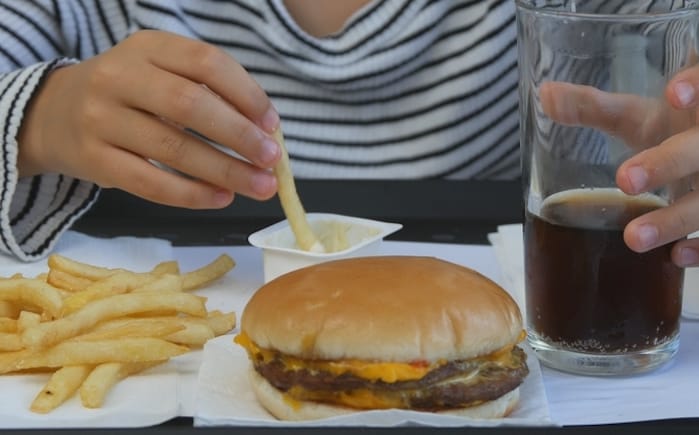- Calls to this hotline are currently being directed to Within Health, Fay or Eating Disorder Solutions
- Representatives are standing by 24/7 to help answer your questions
- All calls are confidential and HIPAA compliant
- There is no obligation or cost to call
- Eating Disorder Hope does not receive any commissions or fees dependent upon which provider you select
- Additional treatment providers are located on our directory or samhsa.gov
Eating Disorders in Children 12 and Under
Children commonly experience food preference “phases”, leading parents to consider initial changes in eating as “normal”.
Because young children are smaller in stature and weight, smaller amounts of weight loss subsequent to food refusal can lead to sudden onset of eating disorder diagnoses.
By the time parents become aware of the significance of weight loss and disordered eating symptoms, changes in behavior and attitude can be profound.

What Are Typical Presentations of Eating Disorders in Young Children?
Most children with eating disorders have more atypical eating disorder symptoms. Presentations are often complex and patterns of food restriction are usually different from older patients. Common reasons for food refusal in children include:
- Fear of getting “fat” related to seeing other peers teased at school
- Fear of getting stomach aches or vomiting, choking
- Aversion to tastes, smells and textures
Many children have pre-morbid anxiety symptoms which further impact their fears and disordered eating, while others may develop OCD-like behaviors which coincide with restriction and malnutrition. Children often present in behaviorally regressed states, displaying:
- Severe tantrums
- Physical aggression
- Screaming
- Excess movement
What Eating Disorders Diagnoses Are Commonly Seen in Young Children (Defined by DSM-5)?
- Avoidant/ Restrictive Food Intake Disorder (ARFID): Lack of interest in food, limited diet due to sensory issues, or food refusal related to fears of aversive experiences (choking, vomiting)
- Eating Disorder Not Elsewhere Classified (EDNEC): Dysregulated eating that does not fit all diagnostic criteria of AN, BN, or BED
- Anorexia Nervosa (AN): Significantly low body weight, intense fear of gaining weight, distorted body image, and persistent behavior that interferes with weight gain. (Many children meet these criteria except fear of weight gain and/or distorted body image and are may be diagnosed with EDNEC)

How Are Eating Disorders in Younger Children Treated?
Family centered interventions are most effective in younger children. “Family Based Therapy (FBT) informed care is most appropriate, with parents taking charge of nutrition decisions and gaining skills in meal support and supervision and management of food avoidant behaviors and anxiety.
Medical monitoring by a pediatrician is critical. Severe eating disorders or medical instability may require higher levels of care. Consultation with dieticians can also be helpful if parents are uncertain about how to provide meals sufficient for weight restoration.
Does Treatment Differ From Treatment with Adolescents?
Because children developmentally lack cognitive abstraction, treatment is primarily behavioral and focuses on rewards and consequences related to ensuring adequate nutritional intake and management of maladaptive behaviors.
Prior to seeing improvement, periods of behavioral regression are common, including:
- Refusal to eat solids necessitating a liquid supplement diet
- Complete refusal of food and supplement requiring NG tube feeding
- Increase in aggressive tantrums/outbursts
- Increase in anxiety
Due to these issues, children often require longer stays in intensive treatment programs.
What Are Medical Complications of Childhood Eating Disorders?
Most medical complications resolve with stabilization of intake and weight restoration. Nutritional insufficiency during periods of development can slow growth and puberty, decrease bone density and cause structural and functional brain changes. Persistent malnutrition can lead to loss of growth potential and osteopenia in addition to other medical complications.
When Should Medical Hospitalization Be Considered?
Children have the best prognosis when diagnosis and treatment occur early in the course of illness to avoid medical morbidities. Unfortunately, hospitalization may be necessary.
Medical Guidelines for Hospitalization of Children with Eating Disorders:
- <75% IBW, or ongoing weight loss despite intensive management
- Heart rate <50 bpm daytime; <45 bpm nighttime
- SBP <90 mmHg
- Hypothermia T<96˚F
- Arrhthymia including prolonged QTc
- Electrolyte abnormalities
- Intractable vomiting

How Do You Manage Barriers to Families Accepting Treatment Recommendations?
Parents vary in awareness of need for and readiness to receive treatment. Children typically do not recognize their symptoms as a problem and are often resistant to treatment.
Given the necessity of parental involvement in treatment, while considering parents’ level of readiness and acceptance of treatment, evaluating teams should convey clinical information while developing rapport essential to facilitating acceptance of treatment recommendations.
Encourage parents to elaborate on their concerns to improve rapport and diminish resistance.
How Should Parents Approach Re-Feeding?
Parents must be prepared to prioritize the need to take control of all aspects of daily nutrition (planning, preparing, supervising meals and snacks). Families and patients should think of food as medicine or ‘fuel to run the body’.
Just as medications are prescribed to be taken a certain number of times daily, nutrition “prescriptions” include eating a minimum of three meals and 2-3 snacks each day. This requires changes to home, work and school schedules.
How Many Calories Do Children Need to Restore Weight?
Guidelines suggest beginning with 200 to 300 calories above the patient’s daily calorie intake. Most patients need to work up to at least 3000 calories each day to gain weight, while limiting activity until target weight is reached. Weight trends should be monitored closely until restoration to an appropriate weight for the child is reached and maintained.
Are Medications Used to Treat Eating Disorders?
No medications are approved for treatment of AN, ARFID or BED. Medication (often SSRI’s) can be helpful for co-morbid conditions, such as depression, anxiety, and OCD. Fluoxetine is approved for the treatment of Bulimia Nervosa
Do Children With Eating Disorders Ever Recover?
Most young children who receive eating disorder treatment soon after onset and diagnosis have a good prognosis. Many patients restore weight, experience normalized eating and are able to return to normal daily activities. Ongoing parental involvement in meal planning and support, as well as behavioral management is necessary for long-term recovery.
Community Discussion – Share your thoughts here!
What has been your experience with eating disorder recovery in children 12 and under? What types of support have you utilized in order to achieve success?
The opinions and views of our guest contributors are shared to provide a broad perspective of eating disorders. These are not necessarily the views of Eating Disorder Hope, but an effort to offer discussion of various issues by different concerned individuals.
Contributors: Mindy Solomon, PhD, Jennifer Hagman MD, Ashley Kroon Van Diest, MS
Last Updated & Reviewed by: Jacquelyn Ekern, MS, LPC, on December, 11 2014. Published on AddictionHope.com

